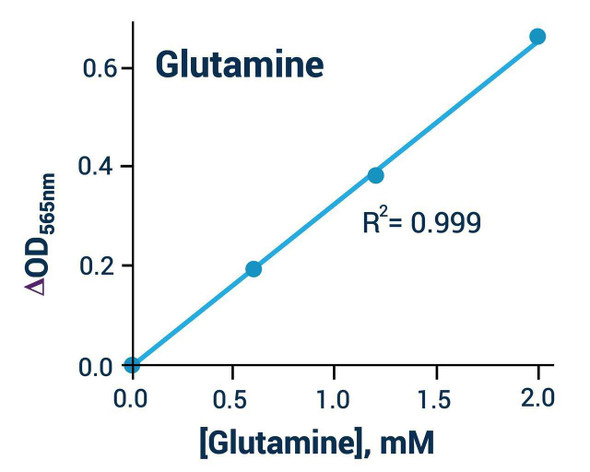

Chloride Assay Kit - Information
Assay Genie's chloride assay kit is designed to measure chloride directly in biological samples without any pretreatment. This Chloride Assay kit based on the improved Fried method utilizes mercuric 2,4,6-tripyridyl-s-triazine, which forms a colored complex specifically with chloride. The intensity of the color for this chloride assay is measured at 610nm. This is directly proportional to the chloride concentration in the sample. The optimized formulation substantially reduces interference by substances in the raw samples.
Applications
For quantitative determination of chloride ion and evaluation of drug effects on chloride metabolism.
Chloride Assay Kit - Key Features
- Sensitive and accurate. Use as little as 5 samples. Linear detection range 0.7 mg/dL (0.2 mM) to 35 mg/dL (10 mM) Cl- in 96-well plate assay.
- Simple and high-throughput. The procedure involves addition of a single working reagent and incubation for 5 min. Can be readily automated as a high-throughput assay for thousands of samples per day.
- Improved reagent stability and versatility. The optimized formulation has greatly enhanced reagent and signal stability. Cuvet or 96-well plate assay.
- Low interference in biological samples. No pretreatments are needed. Assays can be directly performed on raw biological samples i.e., in the presence of lipid, protein and minerals such as magnesium, iron and zinc.
Chloride Assay Kit - Data Sheet | |
| Kit Includes | Reagent: 50 mL Chloride standard: 1 mL 35 mg/dL Cl- |
| Kit Requires | Pipeting devices and accessories, clear flat-bottom 96-well plates and plate reader, or spectrophotometer and cuvets. |
| Method of Detection | OD610nm |
| Detection Limit | 0.7 mg/dL (0.2 mM) |
| Samples | Biological, food and environment |
| Species | All |
| Protocol Length | 5 min |
| Size | 250 tests |
| Shelf Life | 12 months |
| Storage | Store Reagent and Standard at 4°C |
More Details
Chloride is the major extracellular anion in human body fluids. Chloride plays a key role in maintaining proper water distribution, osmotic pressure and electrolyte balance. Low chloride concentrations may be found with prolonged vomiting, extensive burns, metabolic acidosis, Addisonia crisis and renal diseases. Elevated chloride concentrations are associated with dehydration, congestive heart failure, hyperventilation and urinary obstructions. Determination of chloride in sweat is useful in diagnosing cystic fibrosis. Simple, direct and automation-ready procedures for measuring chloride concentration in biological samples are becoming popular in Research and Drug Discovery.








